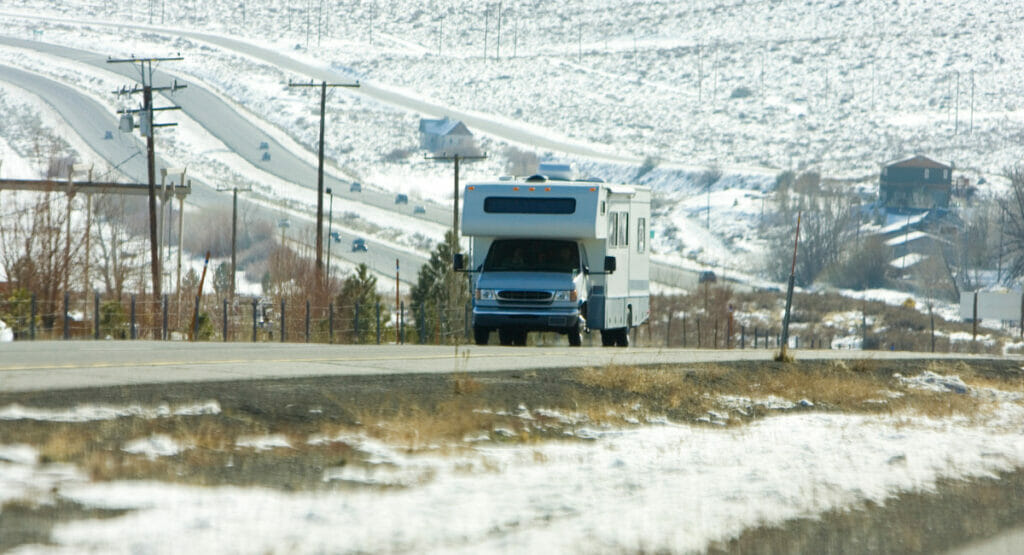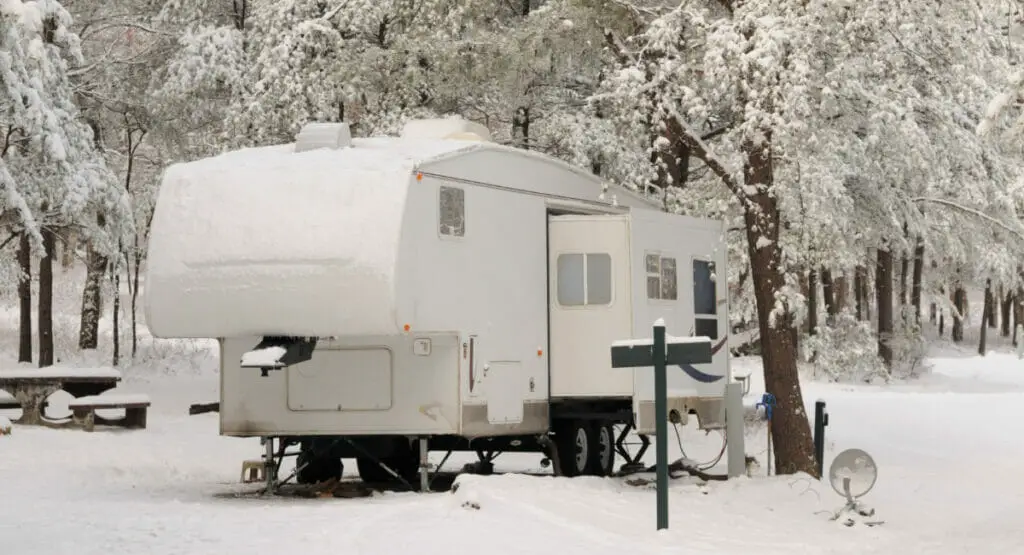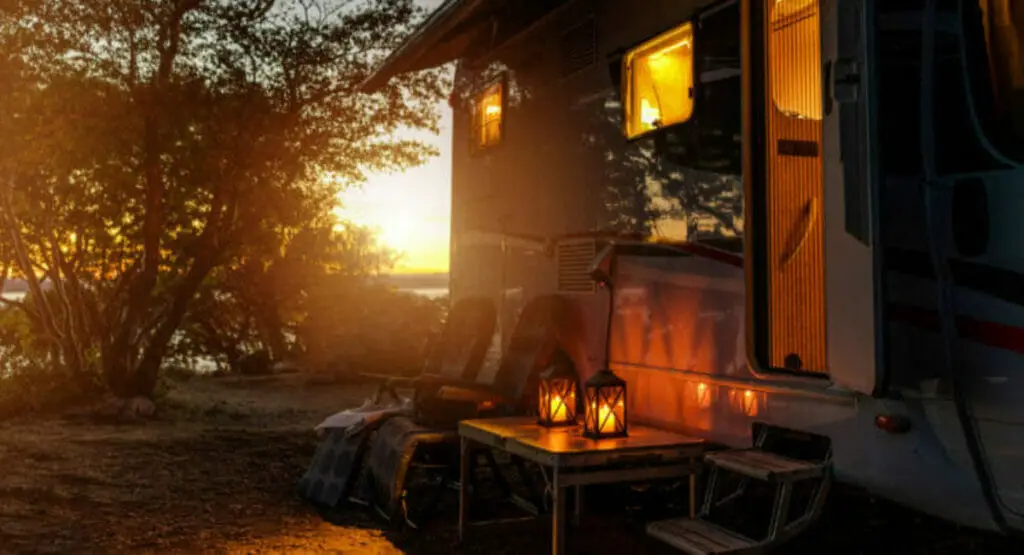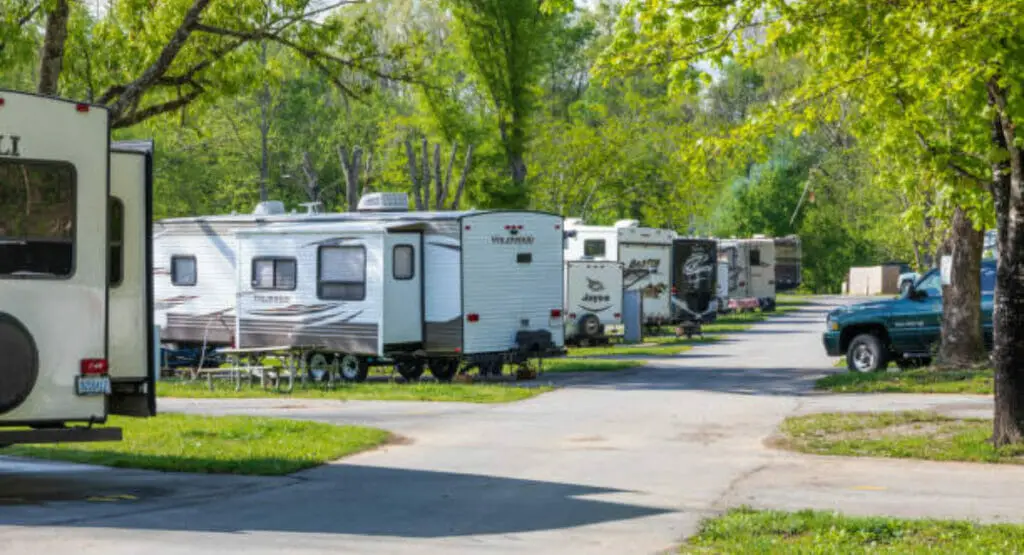Introduction
As the winter season approaches, RV owners begin carefully storing their vehicles. Throughout this procedure, one typical question arises: which objects are permitted to remain inside the RV, and which must be removed? Our goal with this blog article is to provide you with detailed information on the items that may be safely stored inside your RV during the cold winter months.
Why it’s Important to Prepare Your RV for Winter?
Preparing your trusty RV for winter storage should be high on your priority list, my friend. Neglecting to properly winterize your vehicle could result in a hefty bill for costly repairs and maintenance come springtime. The colder months can be especially tough on your RV’s water and electrical systems, and failing to prepare them for the winter can lead to serious damage. Even your beloved appliances and furniture are at risk of being affected by the chilly temperatures and moisture, which could potentially create more problems down the line. But don’t fret! By taking the necessary time to prepare your RV for winter storage, you can help thwart these issues and guarantee that your vehicle is in tip-top shape when you’re ready to hit the road again in the spring.
What You Can Leave in Your RV Over the Winter?
1. Brakes and tires
Tires and brakes are essential components of your RV that must be serviced before winter storage. To prevent flat spots from appearing on your tires, fill them to the correct pressure before storing them. Moreover, putting tire covers over your tires might provide additional UV protection. It is also critical to use a wheel chock to prevent the RV from moving during storage, which can place excessive pressure on your tires and brakes. Following these easy steps will help guarantee that your tires and brakes are in good working order when you return to the road in the spring.
2. Water System
You may leave water in your RV throughout the winter, but you must properly prepare the water system to minimize damage from freezing conditions. To do so, you must drain the whole system, including the freshwater tank, water heater, and pipelines. When you’ve drained the water, apply antifreeze to the system to keep any residual water from freezing and causing harm.
3. Electrical System
Generally, you may keep your RV’s electrical system in place over the winter, but it’s a good idea to disconnect the battery and store it somewhere warm and dry. This will keep the battery from freezing and damaging itself. Moreover, before storing your RV, switch off all electrical appliances and lights to eliminate any excessive drain on the battery.
4. Home appliances
If RV appliances are thoroughly cleaned and emptied, they may normally be kept in place for winter storage. But, to avoid any potential leaks or mishaps, switch off the propane supply to your RV. Before storing any appliances, make sure you turn them off and unplug them, including the stove, oven, and microwave. If your RV has a refrigerator, make sure you empty and properly clean it. Keeping the refrigerator doors open during storage can aid in the prevention of mold and mildew growth. Taking these precautions may help guarantee that your appliances are in good working order when you need them again in the spring.
5. Furniture
Furniture is a vital element of your RV, and if properly cleaned and secured, it can normally be left in place for winter storage. When storing your furniture, properly clean all surfaces, including tables, chairs, and sofas. Vacuuming and wiping down surfaces can aid in the removal of dirt and debris that have been collected during use. Consider utilizing covers to keep dust and moisture off of your furniture and mattresses. This might help protect the furniture while it is in storage. By completing these easy procedures, you can help guarantee that your furniture is in good shape when you’re ready to utilize your RV again in the spring.

Things to Remove from Your RV During the Winter
1. Perishable Food
When storing your RV for the winter, always remove any perishable food items. This includes meat, dairy, and fresh fruit, as well as any open food containers. Keeping food in your RV can attract bugs and rats and contribute to unpleasant odors.
2. Non-perishable Food
While non-perishable food items can theoretically be left in your RV throughout the winter, it’s best to remove them as soon as possible. This will help to avoid any possible bug problems as well as keep your food from becoming stale or expired.
3. Propane Storage Tanks
Propane tanks are a vital part of your RV, but they should always be removed before storing them for the winter. Propane is hazardous if it spills or if the tanks are broken. It is critical to keep propane tanks in a secure, dry area separate from your RV, such as a shed or garage. When storing your RV, switch off the propane supply and disconnect the tanks. By removing propane tanks from your RV, you may help ensure its safety and avoid any mishaps. Before disconnecting the tanks in the spring, inspect them for any damage.
4. Personal Items
Leaving personal belongings in your RV can be an appealing convenience. However, it’s crucial to prioritize the security of your possessions. It’s recommended that you remove any valuable or sentimental items, such as electronics, jewelry, and family heirlooms, and securely store them in a safe location outside of your RV. This approach can help prevent any potential damage or theft during storage. Additionally, it’s wise to remove all bedding or linens and store them in a dry, temperature-controlled location to minimize the possibility of moisture and mold accumulation. By taking these basic precautions, you can ensure that your personal effects remain intact and in optimal condition for use when you retrieve your RV in the spring.
Conclusion
As the frosty winter season approaches, RV owners must be prepared to put in the effort to ensure their beloved vehicles are well taken care of. Proper winter storage is crucial in minimizing potential damage or complications that may arise during these colder months. By heeding the advice presented in this article, you can assess which items can be securely stored inside your RV and which must be removed. Remember to take ample time to prepare your RV for winter storage to ensure it remains in top-notch condition for many years of adventuring ahead.



